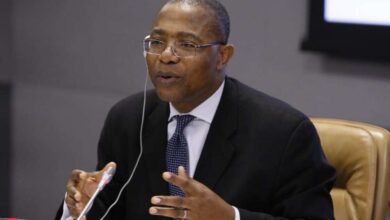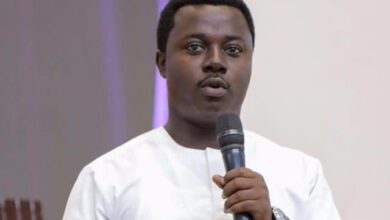Misinformation destroys democracy – Samson Lardy Anyenini

Broadcast Journalist, Samson Lardy Anyenini, has urged Ghanaians to recognise the power of words in shaping the nation’s democracy. The award-winning journalist laid bare how misinformation, apathy, and unchecked wrongdoing threaten the very foundations of Ghana and why communication must become a force for truth, accountability, and civic empowerment.
“Responsible communication in the media and online is not optional,” Lardy emphasised. “Misinformation and fake news can destroy our democracy. We must champion truth, fact-checking, and stability in every corner of our media landscape. Offenders must be held accountable.” His words were a clarion call for journalists, content creators, and social media users alike to uphold ethical standards in information sharing, recognising the profound impact their words can have on society.
Beyond the media, lawyer Anyenini highlighted the urgent need for communication to address environmental and societal challenges. He condemned illegal mining, commonly referred to as Galamsey, noting its destructive impact on Ghana’s water bodies, forests, and farmlands. “Effective communication must champion responsible mining and environmental protection before it is too late,” he urged, stressing the responsibility of both citizens and the media to amplify awareness about the consequences of unsustainable practices.
He also stressed that democracy cannot thrive when citizens remain uninformed or disengaged, especially in rural areas. “Communication must go beyond Accra and Kumasi into every village and district. Citizens need to know their rights, understand policies, and recognise the power of their votes,” he explained. His call to action was clear: grassroots education is essential to ensure every Ghanaian can actively participate in shaping the nation’s future.
The renowned Lawyer spoke at a seminar organised by the Communication and Media Studies Students Association (CoMSSA) of the School of Communication and Media Studies (SCMS) at the University of Education, Winneba (UEW).




